- Home
- Ellis, Tim
The Terror at Grisly Park (Quigg 5) Page 8
The Terror at Grisly Park (Quigg 5) Read online
Page 8
‘I think you do.’
‘I know what you’re thinking, but it never happened.’
‘Oh, I think it did. I saw the bitch going gooey-eyed over you yesterday. It’s the only explanation. You pretended to go to bed on your own, she sneaks up to your room, taps on the door, you let her in, and . . . I think we can all imagine what happened after that.’
‘It’s a beautiful story. Eloquently told, but it never happened.’
‘You’re a liar.’
‘I’m a senior detective in the Met. Senior detectives in the Met don’t tell pork pies.’
‘Maybe I’ll go and ask her how that earring ended up in your bed.’
‘Maybe you should. At least then we’d know.’
She stood up. ‘I will, unless you tell me the truth.’
‘You wouldn’t know the truth if it jumped up on the table and started dancing a jig.’
She stomped off towards reception.
There must be some rational explanation for Magdalena’s earring ending up in his bed. The trouble was, he had no idea what it might be. And he’d noticed three strange things this morning. First, he’d gone to bed wearing his boxer shorts, but when he’d woken up they were on the floor. Second, if she’d come to work from home, why was she only wearing one earring? Surely, upon discovering that she had an earring missing, she would have put a different pair in her ears. Third, why had Magdalena blushed when Kline had given her the earring back?
If she had come to his room wanting sex with him he was sure he would have obliged, because he was the kind of guy who had trouble saying no to an attractive woman, and she was certainly attractive. Also, now he thought about it, he’d certainly been feeling randy. He wasn’t feeling randy this morning, but that didn’t tell him very much.
Kline came back.
‘Well?’
‘I went to the toilet.’
He started clucking like a chicken, flapping his elbows, and jerking his head back and forwards.
Laughing, they made their way out to the command truck. Cheal, Simcox and Lay were just coming out.
‘Had enough?’ he said to them.
‘It’s been a long night,’ Constable Cheal said. ‘Angela Coveney’s got all the stuff you asked us for. She’ll tell you what we found.’
‘Great. Have a good sleep. See you later, ladies.’
‘Goodnight,’ they sang in unison.
‘Right, let’s get straight down to it,’ he said when they were sitting down either side of the central worktop with a coffee each that Kline had made.
‘Security DVDs first?’ Coveney asked.
They swivelled sideways to watch the television screen.
‘When you’re ready, projectionist,’ he said.
Coveney pressed “PLAY” on the remote control. ‘Constable Cheal said she looked through both DVDs and found similar things.’
They leaned towards the screen.
‘What am I looking at?’ Kline said.
‘The time is in the top right-hand corner. It’s quarter to two in the morning. The park has long since shut up shop for the night, and the only people who should be appearing on the film are security guards.’
Quigg’s brow furrowed. ‘They don’t look like security guards to me.’
‘Very observant, Sir,’ Cheal said.
Kline glanced at him. ‘They’re children.’
‘Lost children, left by their parents?’ he ventured.
Coveney shook her head. ‘No such reports.’
He pulled a face. ‘So, what are you saying?’
‘I’m not saying anything,’ Coveney said. ‘You’re the detective – detect.’
‘Do you think they’ve climbed over the fence to cause mischief, damage, or steal the valuables?’ Kline said.
‘I’m a constable. It’s not my place to think. What I can tell you is that no mischief, damage, or thefts have been reported.’
He smiled as it dawned on him. ‘They’re living here, aren’t they?’
‘Diane Cheal has done a good job,’ Coveney said. ‘She went and asked for more tapes from the previous month and also quizzed the security guards about whether they’d seen the children before. They appear on the other tapes as well, and the security guards have seen and chased them all over the park, but they think that the kids just like to climb over the fence to explore and wind them up.’
‘They don’t think the children are living here?’
‘No, they said they’d know if they were, but Diane thinks that the guards wouldn’t know if they had a hole in their arse. She thinks the children are living here.’
‘Any ideas where?’
‘You’d like us to do your job for you, wouldn’t you? And then you can take all the credit for solving another difficult case.’
‘That sounds good to me, Coveney.’ He glanced at Kline. ‘What do you think?’
‘I already know how they feel. I do all the work, and you get all the credit.’
He smiled. ‘The world is running as it should be then. What about the hotel DVD?’
Coveney swapped DVDs over, and pressed “PLAY” again.
They watched as the screen flicked from one view to another. There were sixteen cameras within the hotel, and four outside.
‘Got any popcorn?’ he said, in an effort to stay awake.
She pressed fast forward to five past four. ‘Watch. There . . . did you see it?’
Kline stared at her. ‘See what.’
Coveney shifted the DVD back to five past four. ‘I’ll do it frame by frame this time.’
They watched as a hooded man dragged a heavy bag along the corridor.
‘I think it’s telling us what we already knew, and he’s got a hood. Not much help, really.’
‘It makes me wonder how you ever became a detective, Sir. What about you, DC Kline?’
‘What about me what?’
‘Do you see anything?’
Kline stood up and went closer to the screen, looked at the picture from all angles, and then said,’ Doesn’t do anything for me.’
Coveney sighed. ‘Look at his wrist.’
They both peered closer.
‘A watch?’ Quigg said.
‘Diane and I have had the benefit of enlarging the picture on the computer.’ She passed them each a photograph.
Quigg peered at the picture. ‘You could have simply given us this to start with.’
‘That wouldn’t have been any fun, would it?’
‘A medical bracelet?’ Kline said.
Coveney nodded. ‘Yes.’
‘Do we know . . . ?’
‘Each bracelet has the details of the person’s medical condition inside, and a serial number and telephone number on the reverse of the disc. The serial number is registered with the company who make and sell the bracelets, so if you knew the serial number you could ring up, find out the medical condition, and treat the person.’
‘And . . . ?’ Quigg’s eyes opened wide.
‘We’re miles ahead of you, Sir,’ Coveney said. ‘We don’t have the serial number. Yes, we could find out the number of the company, but . . .’
‘. . . They wouldn’t give us any names,’ Kline finished for her.
‘That’s right. As you very well know, medical information is confidential, unless you need it to save someone’s life.’
‘So, it doesn’t help us?’
Coveney smiled. ‘I didn’t say that, Sir.’
He sighed. ‘You do realise the world is coming to an end in December?’
‘Again? I thought that was last December.’
‘They’ve discovered that the archaeologist who translated the Mayan calendar was a year out. Apparently, he suffered from number blindness. I thought you would have known that, Coveney. You seem to know everything else.’
‘I do, don’t I?’
Quigg squinted at the screen. ‘I don’t suppose he’s visible again?’
‘No.’
‘I don’t see how that�
��s possible,’ Kline said.
Coveney passed them a stapled report. ‘This is what Constable Simcox found out about the Waterbury Asylum for the Criminally Insane.’
‘Do we have to sit here and read it all?’ Kline asked.
‘Waterbury Asylum was originally built in 1898 on top of a plague burial site, and it was a terrible place . . .’
‘. . . If you were deemed to be criminally insane?’ Quigg corrected her.
‘Of course, but they did some truly awful things to the patients, you know. They used to remove the front part of their brain in a procedure called a lobotomy, electrocute them and call it therapy, and castrate the male patients so they couldn’t . . .’
Quigg shifted uncomfortably on his seat. ‘I don’t think we need the gory details, Coveney.’
‘There were lots of other things that they did, which were really horrific torture, but they called it treatment . . .’
‘The history of how the insane were treated in lunatic asylums is well documented. Can we focus on Waterbury . . . ?’
‘In 1973 – just before the asylum was shut down – the body of a missing female patient was found in a disused room in the basement. The room had been locked from the inside, but no key was ever found. She had been tortured, mutilated, and sexually abused before her throat was cut, and her clothes were found neatly folded beside her. When they removed the woman’s body it left a stain on the concrete floor. Rumour has it that this darkened silhouette remained visible despite numerous attempts to scrub it away.’
‘That’s very interesting . . .’
‘The room was . . .’
‘Room 13?’ Kline said, jumping up and down. ‘We have to rip the fucking carpet up, see if the stain is still there. Jesus, that would explain everything . . .’
‘How would it explain everything?’ Quigg said.
‘Well, don’t you see?’
‘I don’t see any connection between the past and what we’ve got now.’
‘That’s why it’s happening in Room 13. Whoever killed that female patient is still there. Remember, the key was never found. He’s stuck there. The key is the access to another dimension . . .’
‘They should re-open the asylum and admit you as their very first patient, you crazy woman.’
Chapter Seven
‘All right, maybe I’m getting a bit overexcited, but don’t you see?’
‘What I see is an escaped mental patient who thinks people can move between dimensions using a door key. Everybody knows you need a hotdog with onions and mustard.’
Everyone laughed.
Kline paced around. ‘We have to take the carpet up to see if the stain is still there.’
‘I don’t think so. If it is still there you’ll start getting ridiculous ideas.’
‘No, no. I promise I won’t.’
‘There’s no point in taking it up then, is there?’
‘You’re just teasing me. I know you’re going to take the carpet up, and when you do that stain will be there waiting for us.’
‘If there is any connection to the past, what would be more useful is finding out who the victim was, and obtaining a list of the patients at that time. I don’t know whether there’s a time limit for the confidentiality of medical information, but we could also do with the patients’ case histories. And, if we’re investigating the events in the asylum, then we also need to know who the staff were and any other significant occurrences during that period.’
‘Constable Hanson is already onto that, Sir,’ Coveney said. ‘I can tell you that there is no time limit for the confidentiality of medical records, and you’ll need a court order to gain access.’ She passed him a piece of paper and a pen. ‘You need to sign the request form.’
He signed. ‘We’re becoming a well-oiled machine, Coveney.’
‘I might take that as a compliment, if I didn’t know you were talking about massage, body oils and sex.’
‘I’m just a soul who’s misunderstood.’
‘Do you want me to ring Perkins, and tell him to pull the carpet up?’
‘Will you stop going on about what’s under that carpet, Kline? It’ll be an ancient story to frighten children, that’s all. You’ll be seriously disappointed when we take that carpet up and there’s a message that reads: “Kilroy Woz Ere”.’
She laughed. ‘You said “when”, not “if”. So, we are going to take up the carpet.’
‘I’m sure that sooner or later someone will lift that carpet, if only to stop you fantasising about inter-dimensional travel. Okay, so the Waterbury is a work-in-progress. What about the two victims – Jiggins and Morgans? What can you tell me about them?’
‘I didn’t know we had a second victim’s name,’ Kline said.
‘I forgot to tell you.’
Coveney decided to sit down. ‘Cora Jiggins doesn’t exist . . .’
Quigg was expecting a report and spread his hands out on the table. ‘In the database?’
‘At all.’
‘It’s a made-up name?’ Kline asked.
Coveney ignored her. ‘It’s an old name. We eventually found her on a family history site . . .’
Neither of them said anything.
‘Cora Jiggins died in 1903 . . .’
Kline grinned and began to chair-dance.
‘Are those second-hand knickers giving you problems?’
‘Aren’t you excited, Sir? Don’t you just know what’s coming? Doesn’t Constable Coveney tell a really good story?’
‘And that’s all it is – a story. Go on then Coveney, tell us where and how she died.’
‘You already know, Sir. She died in the Waterbury Asylum, in what is now Room 13. She was raped and then murdered.’
‘It’s a joke, isn’t it?’
‘No joke. And that’s all we’ve found out about her. There are no further details about what happened.’
‘I knew it,’ Kline said. ‘I knew the murders were related to the asylum – and to the past. That’s two old murders, and eight new ones in Room 13. I bet it’s the same killer.’
‘You don’t know anything of the sort,’ he said. ‘Cora Jiggins was murdered seventy years before the original murder and over a hundred years from what we’ve got now. If it was the same killer, he’d be at least a hundred and fifty years old.’
She grinned. ‘Vampires are immortal, you know.’
He ignored her. ‘So, forget Cora Jiggins from 1903. What about the woman who booked into that room for the night – who was she?’
‘And why did she call herself Cora Jiggins?’ Kline said.
Coveney shrugged.
He shook his head. ‘What about Carl Morgans?’
‘You’ll be pleased to know that he does exist. As forensics has already identified, he was charged with domestic abuse. What they didn’t tell you was that his DNA was matched to two unsolved murders in Peterborough – both women had been raped and murdered.’
Kline opened her mouth to speak.
Quigg squeezed her forearm to stop her. ‘That doesn’t mean there’s any connection with the case we’re investigating now.’
‘No, it doesn’t,’ Coveney agreed. ‘If you believe in mathematically improbable coincidences.’
‘It’s all connected,’ Kline said with utter conviction. ‘We just have to figure out how.’
‘I’ll be the nodding dog of sanity, I think,’ he said. ‘Someone has to keep their head amidst all this crazy talk. Morgans’ phone and credit card records?’
‘Nothing out of the ordinary, Sir.’
‘Find out the details of the two women Morgans raped and murdered. We may as well get all the jigsaw pieces.’
Coveney nodded.
He looked at Kline. ‘And you’ve interviewed all the night duty and security staff from the list and cross-referenced it against the duty roster?’
‘Except for one person.’
‘Oh?’
‘Paula Roberts, a night cleaner. She called in sick last night.’<
br />
‘And?’
‘I was going to wait until she came in tonight.’
‘We’re taking the night off, remember?’
‘Oh yes, I forgot.’
‘Where does she live?’
‘Local.’
‘You can go out to her house and interview her.’
Kline shrugged. ‘Okay.’
‘Do we know if Frye has reported for work this morning?’
Coveney shook her head.
‘I’ll go and find out,’ Kline offered and shot out the door. She was back within a few minutes. ‘No. Nobody’s seen or heard from him since we put him in that cleaner’s cupboard yesterday.’
‘Do we know where he lives?’
She sighed and bolted out through the door again.
‘Local,’ she said when she came back.
‘Good. I’ll start interviewing the guests and the day staff while you go and interview the night cleaner and see if you can find out what’s happened to Frye.’
‘Yeah, it’ll give me a chance to get out of this place and drive the car.’ She rubbed her hands together in anticipation. ‘When can I go?’
‘Now.’
‘You could do some shopping while you’re out,’ Coveney said.
‘I fucking hate shopping.’
‘Inspector Quigg won’t have any coffee to drink or hobnobs to eat if you don’t.’
‘And that would never do,’ he said.
‘Fuck!’ She took the list and the money and stomped down the steps.
Quigg stood up. ‘Right, I suppose I’ll have to make a move. Can you ring Eddie Jenkins at Sanctuary Holdings as well? His number is: 02075 813237, and ask him if he’s aware of anything relating to the owners, the park or the hotel that we should know about. Also, ask him if he has copies of the park and hotel blueprints, or a spare key to Frye’s safe.’
She nodded.
He wandered out of the command centre and into the hotel to the room they’d obtained for interviews.
Were the current murders related to the past? Was there a stain under the carpet in Room 13? Were there children living in the park? How did the killer get in and out of Room 13? Is everything connected as Kline has suggested? Where the hell was Frye? As usual, he had a million questions with zero answers.
***

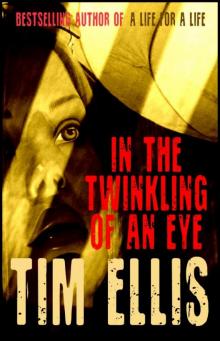 In the Twinkling of an Eye (9781311593672)
In the Twinkling of an Eye (9781311593672)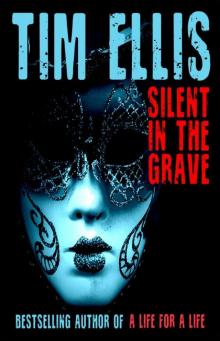 Silent in the Grave (9781311028495)
Silent in the Grave (9781311028495)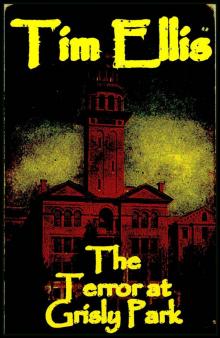 The Terror at Grisly Park (Quigg 5)
The Terror at Grisly Park (Quigg 5)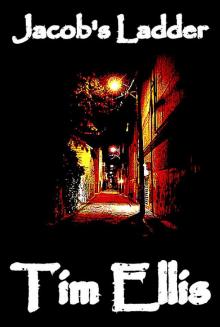 Jacob's Ladder (Stone & Randall 1)
Jacob's Ladder (Stone & Randall 1) Dead Know Not (9781476316253)
Dead Know Not (9781476316253)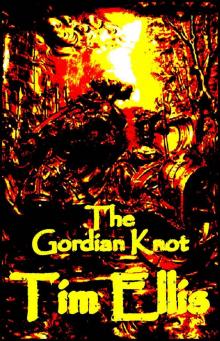 The Gordian Knot (Stone & Randall 2)
The Gordian Knot (Stone & Randall 2) Be Not Afraid (9781301650996)
Be Not Afraid (9781301650996)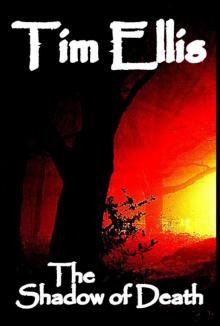 Shadow of Death (9781476057248)
Shadow of Death (9781476057248) Through a Glass Darkly (9781301753000)
Through a Glass Darkly (9781301753000)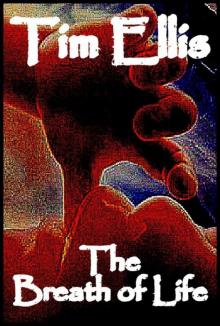 Breath of Life (9781476278742)
Breath of Life (9781476278742)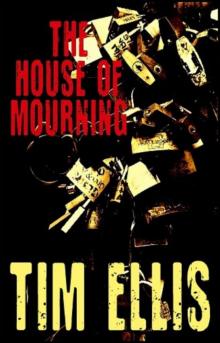 House of Mourning (9781301227112)
House of Mourning (9781301227112)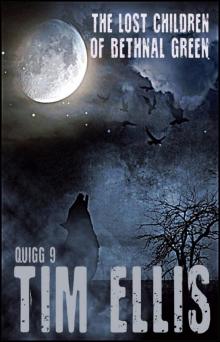 Lost Children of Bethnal Green (Quigg #9)
Lost Children of Bethnal Green (Quigg #9)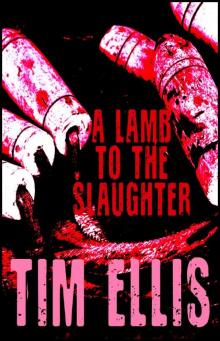 Lamb to the Slaughter (9781301399864)
Lamb to the Slaughter (9781301399864)